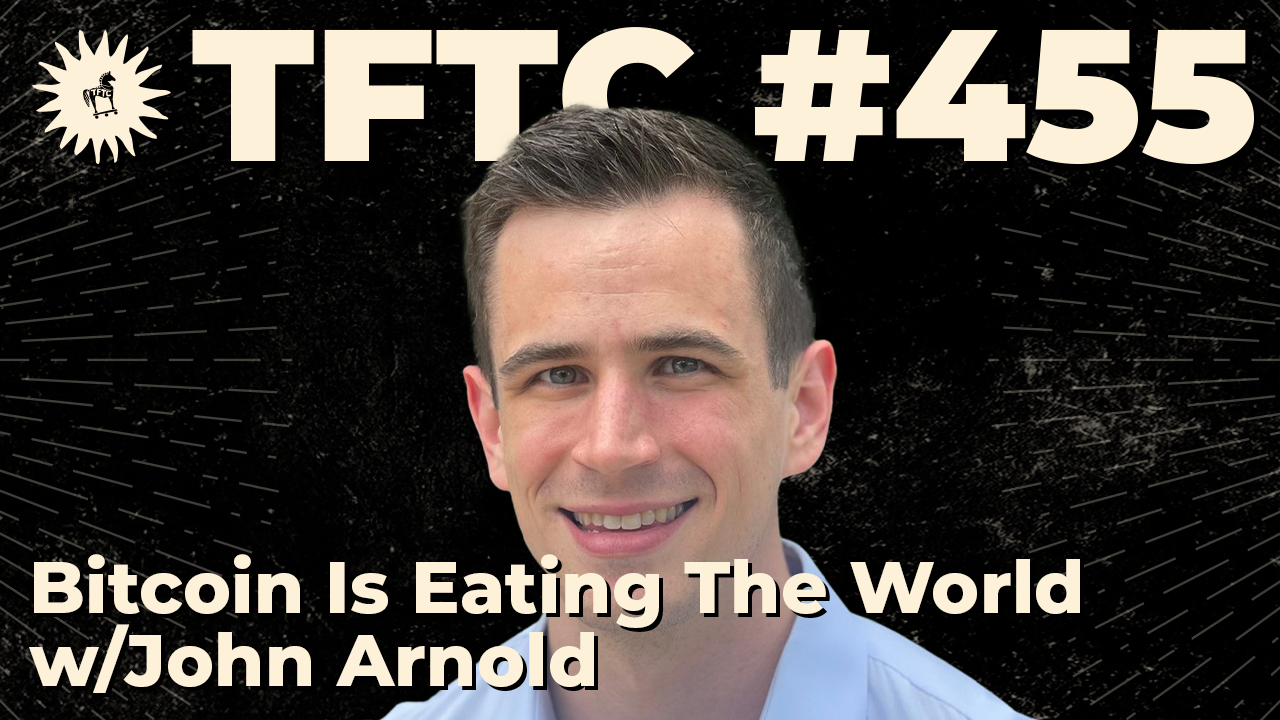A $1,000,000 Bitcoin Won't Cause Chaos
This post was originally published on
Key Takeaways
In this episode of The Bitcoin Frontier podcast, host Joe Burnett from Unchained sits down with Peter Dunworth and Luke Broyles to engage in a deep dive into the profound implications of Bitcoin's immutable and absolute scarcity. Here's an analysis of the key topics and insights discussed:
- Bitcoin as a New Era for Humanity: The episode starts with the idea that Bitcoin represents a third phase in human history, following pre-written word and written word eras. It is argued that Bitcoin's immutable ledger ushers in an era with a recorded history of everything, potentially impacting how humanity moves forward.
- Bitcoin's Scarcity vs. Traditional Assets: The conversation shifts to how traditional assets like gold, stocks, and political currency only have artificial scarcity enforced by institutions, whereas Bitcoin's scarcity is verifiable and outside of human control. This fundamental difference makes Bitcoin an optimistic bet on humanity's future, pricing in not only past and present energy but also future potential energy creation.
- Valuing Bitcoin: Assessing the value of Bitcoin is a significant challenge since it doesn't have cash flows like traditional equities. The guests discuss comparing Bitcoin's market cap to that of gold, which is seen as the most comparable store of value, suggesting that Bitcoin should aspire to be valued at multiples of gold's market cap due to its superior attributes.
- Bitcoin and Human Ingenuity: The discussion points out that investing in Bitcoin is, in a way, investing in the belief in human progress and ingenuity—a stark contrast to traditional assets that can represent a bet against humanity's future success.
- Bitcoin Adoption and Inheritance Tax: The episode touches on global Bitcoin adoption rates, the relatively small median holdings indicating early stages of adoption, and the potential for Bitcoin as a vehicle for efficient inheritance planning, especially in jurisdictions with high inheritance taxes.
Best Quotes
- "Bitcoin is this unit of account. It is this true first scarcity outside of human control." - Luke Broyles
Context: Luke explains the significance of Bitcoin's scarcity, which is not subject to human manipulation, unlike traditional scarce resources. - "Bitcoin allows us to buy actual verifiable scarcity that we can use to price in all of the energy, the sum total of energy in all the industries for today and theoretically, in the future." - Luke Broyles
Context: Further emphasizing Bitcoin's role as a store of value for energy past, present, and future. - "The most important thing you can do for number go up is self custody bitcoin off exchange so that it can't be sold or rehypothecated." - Peter Dunworth
Context: Peter outlines the importance of self-custody for both securing one's Bitcoin and contributing to its price appreciation. - "There's only one thing that has to do with price, and that is going to force price up dramatically." - Peter Dunworth
Context: Peter predicts the impact of steady capital inflows on Bitcoin's price due to the ETF's approval.
Conclusion
The episode of The Bitcoin Frontier podcast delivers a thought-provoking discussion on Bitcoin, highlighting its role as a new paradigm in human history, its unique scarcity, and the optimistic view it represents for humanity's future. The hosts and guests argue that Bitcoin's immutable ledger and scarcity make it a groundbreaking asset that transcends traditional forms of value storage. The conversation also touches on practical aspects of Bitcoin investment, such as the implications of ETF approval, inheritance planning, and the critical nature of self-custody. The overarching message of the episode is clear: Bitcoin is not just a financial instrument, but a vote of confidence in human progress and a call to rethink value in the digital age. The implications of Bitcoin's continued adoption and integration into financial planning could have profound effects on individual wealth and the broader economic landscape.




